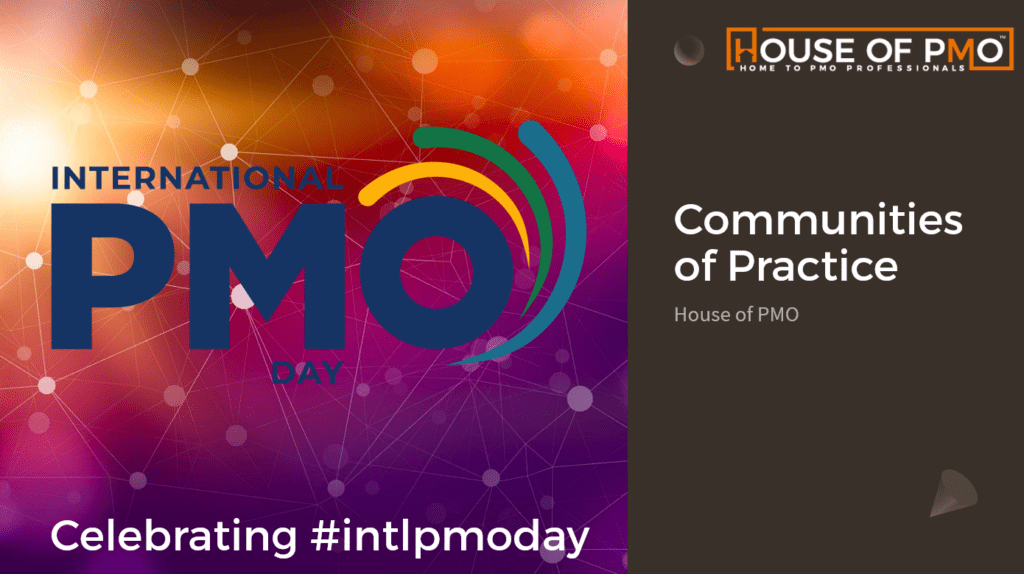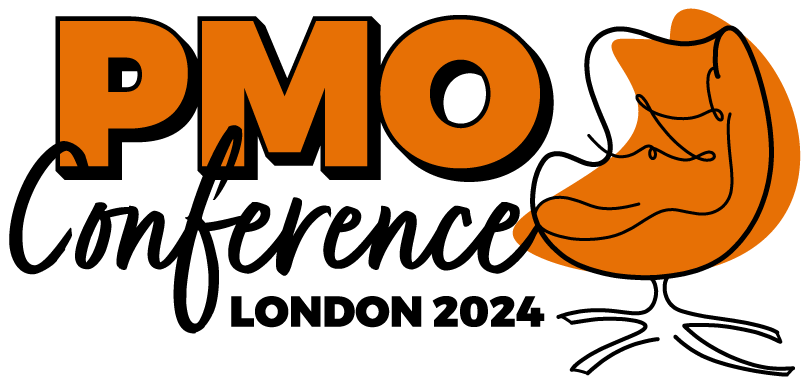You can find all our articles for Free Members
PMO and Communities of Practice
On the second International PMO Day we focused on one of the ways that PMOs contribute to an organisation’s continuous learning culture by bringing learning into the ‘flow of work’ with communities of practice.
In this session, we focused on communities of practice and how the PMO can take responsibility for running them. We also looked at the three-part process of initiating, supporting, and sustaining communities of practice within organisations.
We were joined by a special guest – Algy Ayson. Algy is the Head of Project Delivery Centre of Excellence at House of Commons and is focused on building strong project delivery communities – perfect insights for this session.
Because it was International PMO Day, we also shared ideas on what to include within PMO-focused communities of practice that will help bring your PMO team together.
This session is linked to Knowledge Management and PPM Enabling – Resource Capability in the PMO Competency Framework.
House of PMO is my community of practice 🙂
Recorded Session
Presentation Deck
Download the DeckKey Insights
There is a leading authority on Communities of Practice – Jean Lave and Etienne Wenger have written on the subject for over 30 years. Having a clear definition which includes three elements – domain, community and practice helps to frame the session. The first part of the session was focused on creating a community of practice (CoP) for people practicing PMO – so those people who are working in the PMO.
We are part of a Project Management and Change Management CoP
 What a CoP is and isn’t is a good place to start. It’s about making it clear that the CoP is not another PMO meeting – or even an away-day (although many organisations do choose this approach)
What a CoP is and isn’t is a good place to start. It’s about making it clear that the CoP is not another PMO meeting – or even an away-day (although many organisations do choose this approach)
It is about providing a safe place where people can come together to learn from each other, share big ideas, perhaps work collaboratively on an initiative.
 To build an effective community of practice which will stand the test of time, it has to have clear benefits (or value) to those that take part, the wider PMO team and of course the organisation. CoPs will mean people are stepping away from the day job for an hour or two, but as we stated in the introduction, CoPs contribute to an organisation’s continuous learning culture by bringing learning into the ‘flow of work’ rather than costly training courses for example.
To build an effective community of practice which will stand the test of time, it has to have clear benefits (or value) to those that take part, the wider PMO team and of course the organisation. CoPs will mean people are stepping away from the day job for an hour or two, but as we stated in the introduction, CoPs contribute to an organisation’s continuous learning culture by bringing learning into the ‘flow of work’ rather than costly training courses for example.
The HR department is often a big advocate for communities of practice. Perhaps you can get some help from them to get the wheels in motion?
I’ve leveraged organisation CoPs to great effect when re-working enterprise change frameworks
There are plenty of hints and tips to getting a PMO community of practice off the ground and we share those in the session. Running a CoP, especially in an organisation where there are multiple PMOs, perhaps colleagues in different locations and countries certainly requires great organisational skills and lots of energy to get them started and keep the momentum going.
It can be a really rewarding experience because as people become more engaged, it’s great to see people making connections with others and ultimately helping each other to do the job better. Plus if you’re lucky enough to do them in person, there’s usually snacks to keep everyone happy!
 One of the most interesting parts of setting up and running a community of practice is thinking about where it will happen and what structure it might take. It doesn’t need to be for a full day – sometimes just an hour will do. It also doesn’t need a strict agenda. Just a few different exercises or sessions that are designed to help people come together will get conversations started and then, the group itself can decide on how it wants to take the community forward.
One of the most interesting parts of setting up and running a community of practice is thinking about where it will happen and what structure it might take. It doesn’t need to be for a full day – sometimes just an hour will do. It also doesn’t need a strict agenda. Just a few different exercises or sessions that are designed to help people come together will get conversations started and then, the group itself can decide on how it wants to take the community forward.
One great example for PMO professionals would be a peer review session, or a WIP (work in progress) session where one person just shares with everyone what they are working on right now. For example, they could be putting together a slide pack for a steering committee and they share what they have in their pack and the approach they’re taking. The rest of the community can then feedback on what they think – or how it might spark some new ideas.
 The second part of the session included insights from UK Parliament and how their delivery organisation’s CoP works. This is an opportunity for the PMO to provide a CoP service to the wider delivery organisation – so CoPs for project managers, tech staff or other roles like BAs.
The second part of the session included insights from UK Parliament and how their delivery organisation’s CoP works. This is an opportunity for the PMO to provide a CoP service to the wider delivery organisation – so CoPs for project managers, tech staff or other roles like BAs.
The PMO offers services around knowledge management as well as resource capability; both of these service areas can include supporting others in the set-up of CoPs. If the PMO itself has a thriving CoP, what better way than to demonstrate and lead by example, that CoPs can really make a difference to project management practice.










